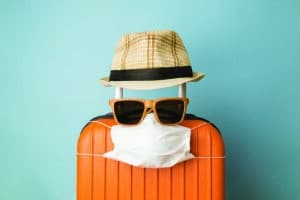
While legal standards protect hotel operators from many COVID liability claims, operators need to adhere to industry standards for mitigation and monitor the health of employees.
In the spring of 2020, the future landscape for tort claims arising from COVID-19 infections was largely unknown, as there was no modern precedent for the types of duties that would be owed during a global pandemic.
How would courts determine the standard of care when the CDC’s guidance for mitigating the spread of the virus changed on a regular basis? Would there be a tidal wave of tort claims against businesses resulting from COVID-19 infections?
Two years later, the tidal wave has not hit. Most states have enacted some form of legislation that shields healthcare and other essential workers from COVID-19 tort liability, except in certain circumstances. Many of those states have extended the liability shield to businesses, including those in the hospitality industry.
Legislation Shields Businesses
For example, Georgia’s COVID-19 Pandemic Business Safety Act protects businesses and property owners, such as hotels and restaurants, from liability for COVID-19 infections unless plaintiffs can prove gross negligence. The act, which currently applies to claims that accrue prior to July 2022, also requires plaintiffs to prove that they did not assume the risk of exposure, transmission or infection of the virus at the business establishment. These burdens make it virtually impossible for plaintiffs to sue based on contracting COVID-19 at the business.
Hotels and restaurants normally have a duty to protect guests and customers from unreasonable risk of physical harm, but what is “unreasonable” will depend on the circumstances. Hotels and restaurants are not guarantors of their guests’ and customers’ well-being, but they must provide a standard of care that a guest or customer would reasonably expect in terms of safety and services during their visit or stay. They also may also have a duty to warn of a known, dangerous condition on the premises, that causes injury. In the case of gross negligence, however, plaintiffs will not only have to show a breach of the standard of care, but also that the establishment demonstrated indifference to an extreme degree of risk or likelihood of serious injury to its employees, guests or patrons.
Cruise ship companies appear to be one of the biggest targets for COVID-19 injury or death lawsuits, perhaps because cruise ships often have large outbreaks making it easier for plaintiffs to pinpoint where they contracted the virus. Claims against cruise ships often face procedural barriers due to the Death on the High Seas Act and various jurisdictional challenges. Cruise ship companies are now also including assumption of risk of contracting COVID-19 clauses in their ticket agreements.
Cruise Operator Accused of Negligence
In Dome v. Celebrity Cruises Inc., however, a federal district court in Florida recently allowed certain negligent misrepresentation claims against the cruise ship company to proceed based on a statement by the captain that “all guests on board remain healthy and happy,” even though numerous guests had exhibited symptoms of COVID-19 infections.

Jessica Gray Kelly
The plaintiffs, a woman and the estate of her husband who ended up dying from the virus, alleged that the captain’s statement lured them into continuing to interact with other guests on the ship when they should have been quarantining. The plaintiffs’ two children, who brought claims based on their being infected with COVID-19 by their parents after they got off the ship, were barred from suing Celebrity because the court held that the company did not owe a duty to non-passengers.
In addition to statutes protecting businesses, courts appear to be setting a high bar for plaintiffs seeking to recover based on COVID-19 infections. Assuming hotels and restaurants adhere to the current, generally understood and accepted industry standards regarding COVID-19 protection and mitigation, and monitor the health and well-being of their employees, they should not face liability.
It may be that claims arising from COVID-19 become a part of the cost of doing business, but the hospitality industry should not face significant tort exposure for COVID-19 infections. If the trend in current legislation shielding businesses from COVID liability changes, businesses should consult their legal counsel for advice on the new legal standards.
Jessica Gray Kelly is a partner at Freeman Mathis & Gary LLP in Boston.




 |
| 

